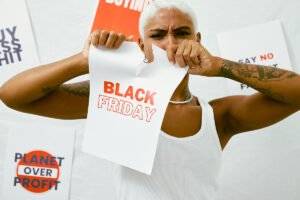
August 11, 2016; Joy FM (Accra, Ghana)
A maelstrom greeted the announcement by Ghana’s police chief in May 2016 that social media would be banned temporarily during general elections on voting day in November for security reasons. This came on the back of earlier rumors of an impending tax on VOIP (voice over Internet protocol) calls. In a country where freedom of speech has become a given, such moves are unprecedented. Compared to parts of East and North Africa, Internet censorship, at least as official policy, is unheard of in West Africa as a whole—even in countries of dubious political repute. Subsequent to denunciations by the UN and Ghanaian media and civil society, the government recently claimed that its intentions are being misconstrued. Whether this is true or a stealthy retraction over intense blowback, it is worth speculating on the implications of such a ban.
By way of context, Ghana’s has been a relatively tranquil recent democratic voyage compared to several of its neighbors. This is not because the factors of instability in those countries do not exist here—they abound. A key factor to Ghana’s stability has been its arguably quiescent populace. But the latter is increasingly politically alert and activist—which is why the proposed ban and the timing of its announcement are so intriguing. Those responsible must have anticipated the fallout. Yet they went ahead. But is the censure justified?
Sign up for our free newsletters
Subscribe to NPQ's newsletters to have our top stories delivered directly to your inbox.
By signing up, you agree to our privacy policy and terms of use, and to receive messages from NPQ and our partners.
Politically, the ban has been denounced as a human rights violation and a lazy way out of confronting the challenges cited as its raison d’être. On the technical front, there is the whole question of whether an outright ban is feasible and what purpose an only partial ban would serve. But perhaps the most telling consideration in all this is that if the ban proceeds, it will set a dangerous precedent. As blogger Malaka Grant argues, a government that gets away with banning social media (access) once is likely to do it again, maybe for less stringent reasons. The human rights records of those countries with partial-to-total Internet censorship are admittedly dismal.
The import of all this for Ghana’s democracy lies in the answers to several questions: What process led to the decision to ban social media? What conversations have happened since it was announced? How transparent and inclusive have both been? Is banning social media the only way to avert chaos in a charged political environment? What are the odds that the government will effect its plans come November? As NPQ recently reported, banning access to the Internet on Election Day will also affect access to health, banking, and other societal benefits and necessities.
So far, there are few coherent answers. But if the experiences of countries that have walked this path are anything to go by, Ghanaians and all investors in Ghana’s democracy should be concerned about the mere idea of the proposed ban because of what it represents and potentially portends: dark days ahead for freedom of speech.—Titilope Ajayi











